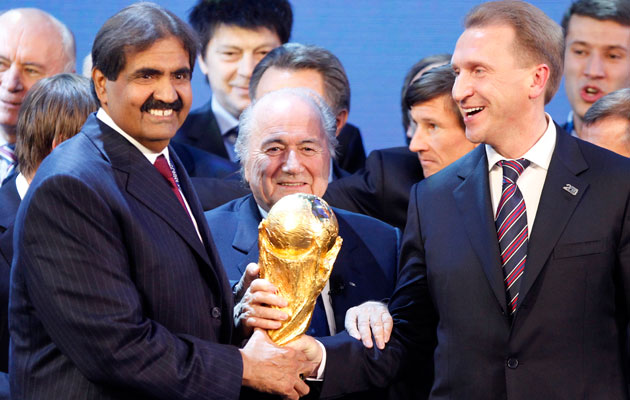One certain fact about the Ukraine crisis is that, in four years time, nothing will be as it is now.
Hence FIFA president Sepp Blatter has underlined a need for stability and clear thinking in insisting that Russia’s hosting of the 2018 World Cup finals is not up for question.
A European Union discussion document has raised the prospect of adding culture and sport to boycott tools in the dispute over Russia’s annexation of Crimea and the military action in eastern Ukraine.
Britain’s Deputy Prime Minister Nick Clegg and several German and United States politicians have also demanded a World Cup bocyott or removal.
All appear ignorant of the fact that the finals are almost four years away and that European qualifying does not start for another two years.
By the time the finals kick off the world political picture will be vastly different with a new US President and probably a new UK Prime Minister (if the UK still is the UK after the Scottish referendum this month) and German Chancellor.
Hence Blatter, who has no time for political boycotts of any shape or sort, said in Austria earlier this week: “We are not placing any questions over the World Cup in Russia.
“We are in a situation in which we have expressed our trust to the organisers of the 2018 and 2022 World Cups. A boycott has never achieved anything.”
Asked last week whether there was any risk that Russia could lose its right to hold the finals because of the political turbulence, President Vladimir Putin said: “I hope not. FIFA has already said football and sport are outside politics and I think that is the right approach.”
Russia intends to host the 2018 World Cup at 12 stadia in 11 cities, including two venues in Moscow, although it is likely that at least one venue will be cut back. The 2022 World Cup will be played in Qatar.
Both awards were made simultaneously in December 2010 after a scandal-wracked process which has been the subject of a two-year investigation by FIFA’s independent ethics prosecutor Michael Garcia.
A verdict is expected early next month from ethics judge Hans-Joackim Eckert. It is not expected that he will order either a re-vote of removal of either award though Garcia is expected to be highly critical of the bidding process.
The 2018 and 2022 awards were made by the FIFA executive committee. A change in rules, prompted by the scandal, means that future World Cup awards will be made by the full congress of the world football federation.







